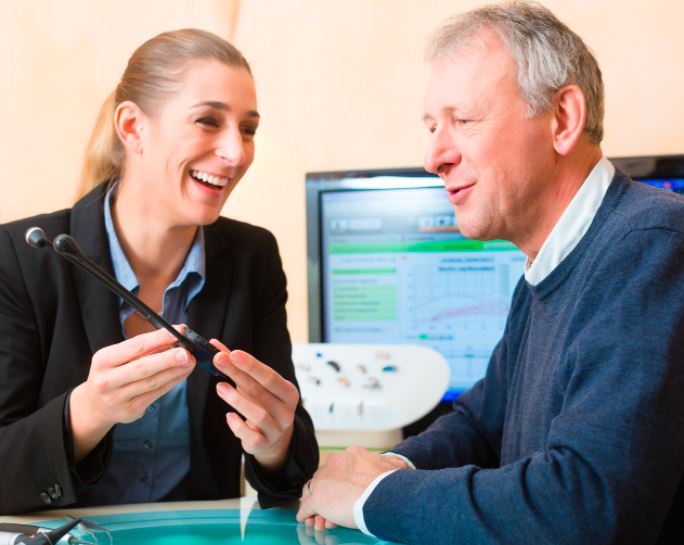This is the second post in a series on why people with hearing loss should care about person-centered care. Today’s post talks about the first tenet: Partner with your Patient.
Hearing loss sometimes reminds me of a snowflake — each one unique in its form and design. Some have smooth edges and intricate patterns, while others are simpler, yet singular in their construction. No two are alike, just like no two people with hearing loss are the same.
Each of us is an individual, with specific communication challenges, divergent coping skills and varying degrees of outside support. We deserve an individually crafted assessment and treatment plan.
Why It is Important to Find an Audiologist That Partners with You
No matter the circumstances, emotional impact, coping mechanisms and types of support networks we have, hearing loss impacts us all in unique ways. A one-size-fits all approach will not work. Your audiologist must take the time to understand YOUR hearing loss journey.
This not only shows compassion and respect for your experiences, it will help them learn critical details about your lifestyle and hearing goals.
Audiologists have a deep knowledge of hearing science and technology solutions, but we are the experts in our own hearing challenges. The combination creates a broad base of knowledge from which to attack our communication problems. Without our input, successful solutions will be harder to find.
What Should You Look For?
We all bring our own challenges, skills and life circumstances to each appointment. The best audiologists will take these into account as part of your assessment and when formulating their communication and technology recommendations.
Here is what to look for to make sure this is happening at your next visit:
Does your audiologist ask for your input?
The best audiologists will have you prepare for your first appointment by filling out a questionnaire to identify your most challenging communication problems and the top three situations where you desire improvement. If they don’t ask you, how will they know where you require help?
Do they listen to your priorities in addition to test results?
Audiograms and other test results are critical for diagnosing the degree and type of hearing loss you have, but they won’t tell your audiologist everything. Inform them about outside factors like your work environment and what coping strategies you are already using to hear better. Insist that they focus on your individual circumstance, not what worked for others with similar test results. Analytics are only part of the equation in person-centered care.
Do you build your treatment plan together?
You know the situations that are most difficult for you to hear. Make sure they take center stage in your treatment plan. The best audiologists will involve you in constructing the plan and making sure it focuses on the areas that are most important to you. When you are a part of the process, you will be more motivated to follow through with the suggested actions.
Do they empathize with your journey?
Respect and compassion are important parts of developing trust and rapport. Make sure your audiologist is taking the time to get to know you and what communication situations are most important to you. This is better care and also smart business because happy patients are more likely to recommend their services to a friend.
Do they include your family?
Family engagement is critical. They are your most important support network and need to be informed about your hearing issues so they know how to help.
Sometimes family may be skeptical thinking that you are ignoring them or not trying hard enough to hear. Learning about your difficulties from an expert like an audiologist can nip those feelings in the bud. Plus, your audiologist will learn a lot from them about what types of situations are hardest for you to communicate well.
For more details on the importance of partnering with your patient, please consult my e-book Person-centered Care from the Patient’s Perspective.

Shari Eberts is a hearing health advocate, writer, and avid Bikram yogi. She is the founder of Living With Hearing Loss, a blog and online community for people living with hearing loss and tinnitus. She also serves on the Board of Trustees of Hearing Loss Association of America. Shari has an adult-onset genetic hearing loss and hopes that by sharing her story she will help others to live more peacefully with their own hearing issues. Connect with Shari: Blog, Facebook, LinkedIn, Twitter.






